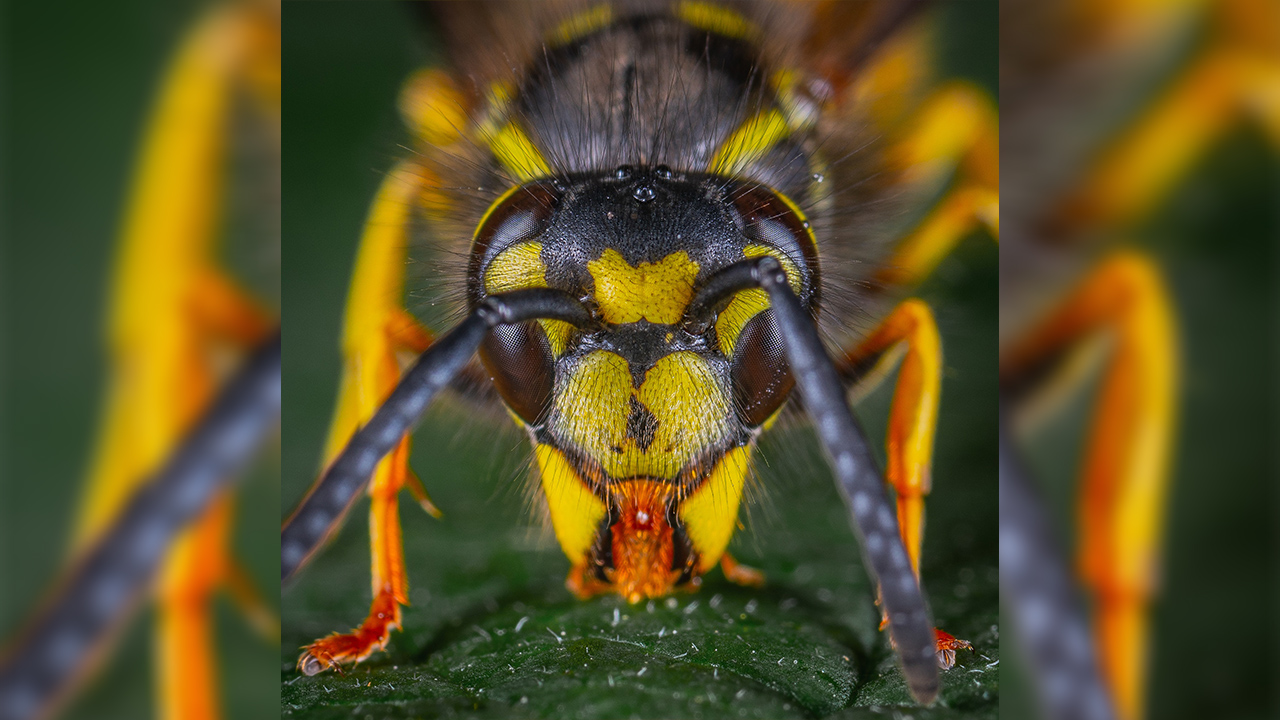Europe UK (Commonwealth Union) – A groundbreaking study led by researchers from the University College London (UCL) has harnessed the power of The Big Wasp Survey, a collaborative citizen science initiative that engaged countless volunteers across the UK. The study’s findings have illuminated crucial genetic insights into the behaviors and characteristics of the common wasp.
By tapping into the data and samples provided by dedicated amateur “citizen scientists,” the research team embarked on a pioneering endeavor: conducting the first extensive genetic analysis of Vespula vulgaris, commonly known as the Common Wasp, across its natural habitat.
The outcomes of this study, recently published in the journal Insect Molecular Biology, have cast light on a remarkable discovery. Across the expanse of Britain, a single population of the common wasp thrives, showcasing a surprising level of genetic uniformity. In contrast, the insect’s genetic diversity exhibits greater differentiation on the other side of the Irish Sea, specifically in Northern Ireland.
Such findings are indicative of the common wasp’s impressive adaptability and dispersal capabilities. This adaptability likely contributes to its success in thriving within human-modified environments, not only within its native European habitats but also as an invasive species in regions like Asia and beyond.
Iona Cunningham-Eurich, the lead author of the study and a researcher affiliated with UCL’s Centre for Biodiversity & Environment Research, UCL Biosciences, and the Natural History Museum, embarked on this journey during her tenure as an MSci student. Now pursuing a PhD at UCL, Cunningham-Eurich expressed the significance of the research by highlighting the familiarity of Vespula vulgaris to many in the UK. The study serves to fill in essential gaps in understanding about the common wasp’s ecological behaviors and dispersal tendencies within its home territory.
“By finding a single, intermixing population across Britain, our findings add to evidence that the common wasp is very good at spreading across the landscape, which may be because the queens are able to fly great distances, either on their own steam, aided by the wind, or accidentally transported by people.”
For the study at hand, orchestrated by a research team under the guidance of UCL, a meticulous examination of 393 wasp samples amassed during the first two years of the survey was undertaken. The comprehensive analysis spanned a geographical spectrum across the nation, and through this exploration, the researchers made a remarkable discovery. The data showcased significant gene flow, indicating a limited degree of genetic differentiation across the expanse of Britain.
Professor Adam Hart, a co-author and co-founder of the Big Wasp Survey from the University of Gloucestershire, emphasized the magnitude of this study in terms of its implications for citizen science. Despite the humble and perhaps less than expert preservation methods of the samples, advanced genetic analyses were conducted, yielding invaluable insights. Professor Hart extended gratitude to the citizen scientists whose dedication and contribution are pivotal in making such research attainable.
As the initial five years of the Big Wasp Survey unfolded, an impressive cohort of 3,389 individuals engaged in the initiative, collectively amassing a more than 62,000 wasps. The data they generated have manifested into reliable species distribution maps, exhibiting a quality on par with those gleaned from decades of expert-collected data. What’s more, the continuous efforts of the research team are delving into deeper understandings regarding the diversity and geographic distribution of social wasp species throughout the UK. Moreover, the survey holds potential significance in identifying the yellow-legged Asian hornet (Vespa velutina), an invasive species prevalent across Europe and sporadically sighted in the UK.
Senior author and co-founder of the Big Wasp Survey, Professor Seirian Sumner of the UCL Centre for Biodiversity & Environment research, UCL Biosciences says “Wasps are incredibly important as natural pest controllers and pollinators, so it’s very exciting that we’re able to improve our understanding of this common and fascinating insect with the support of citizen scientists, while also giving them the opportunity to get better acquainted with wasps, and see this much maligned insect in a different light.”








